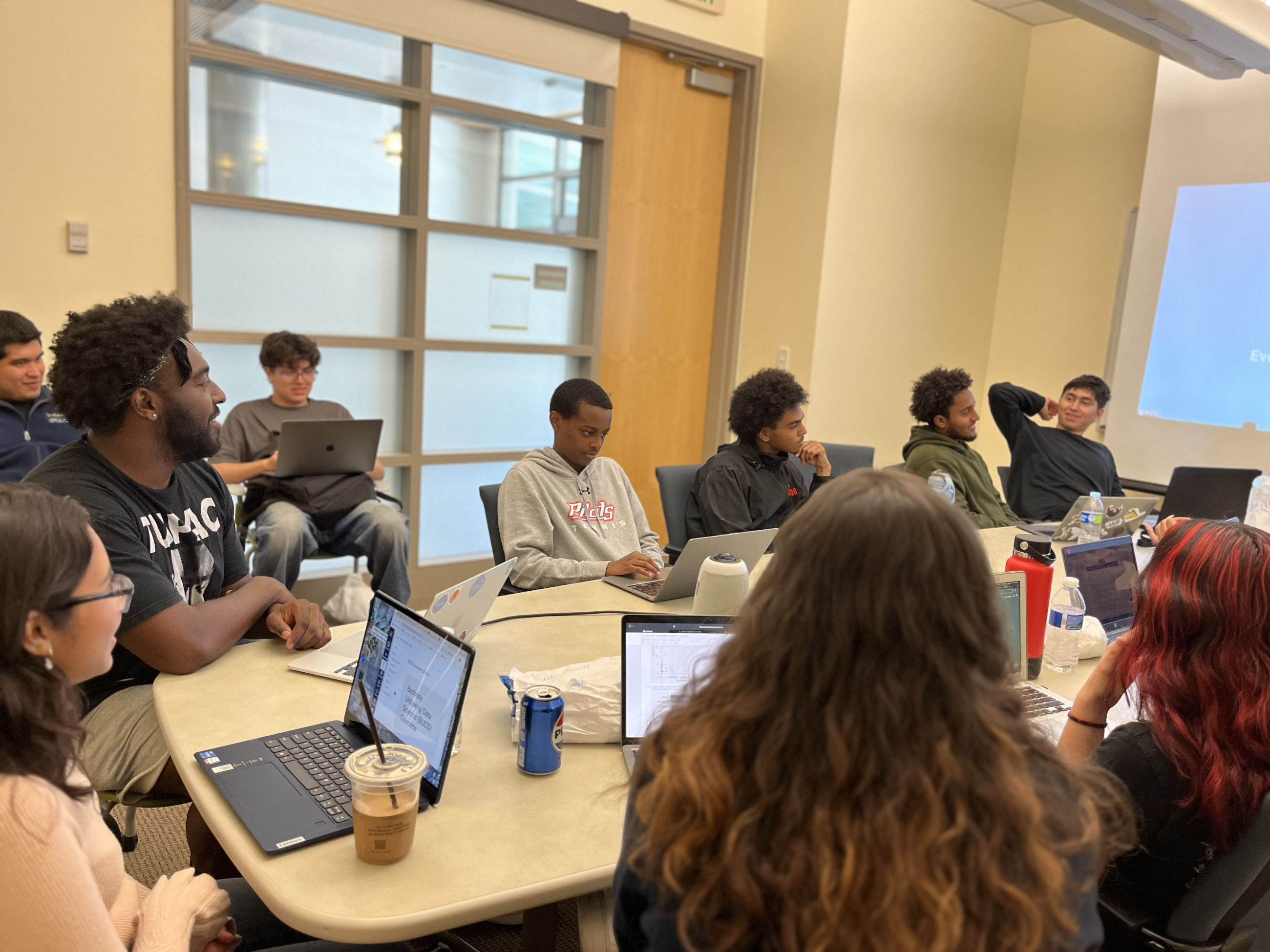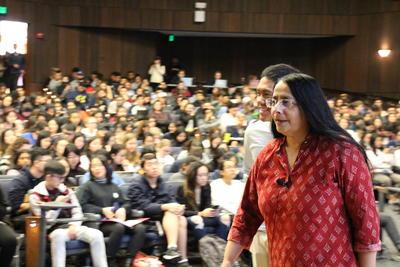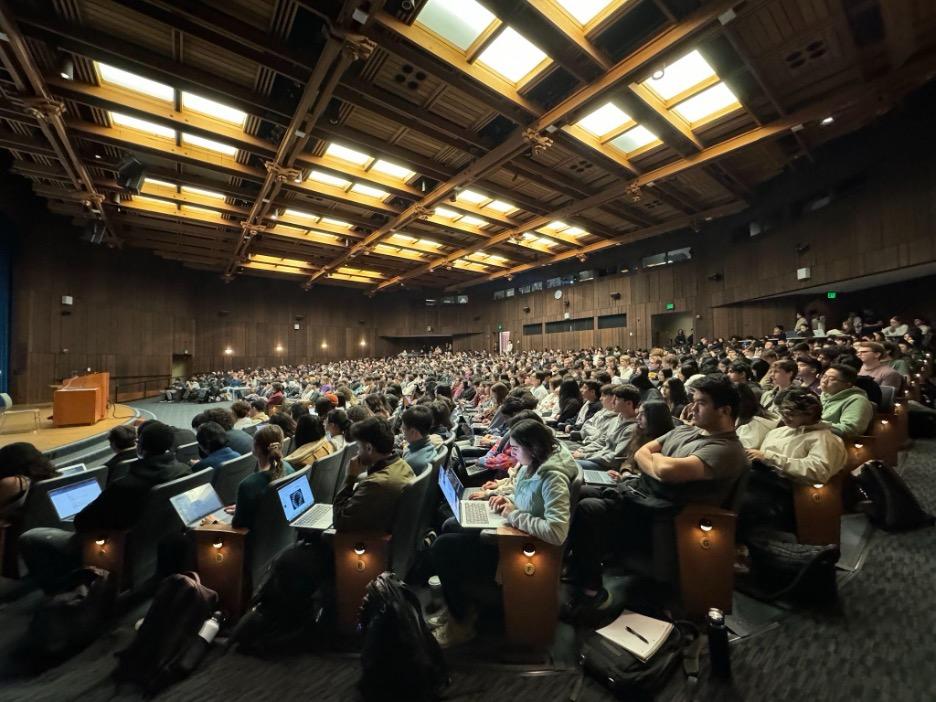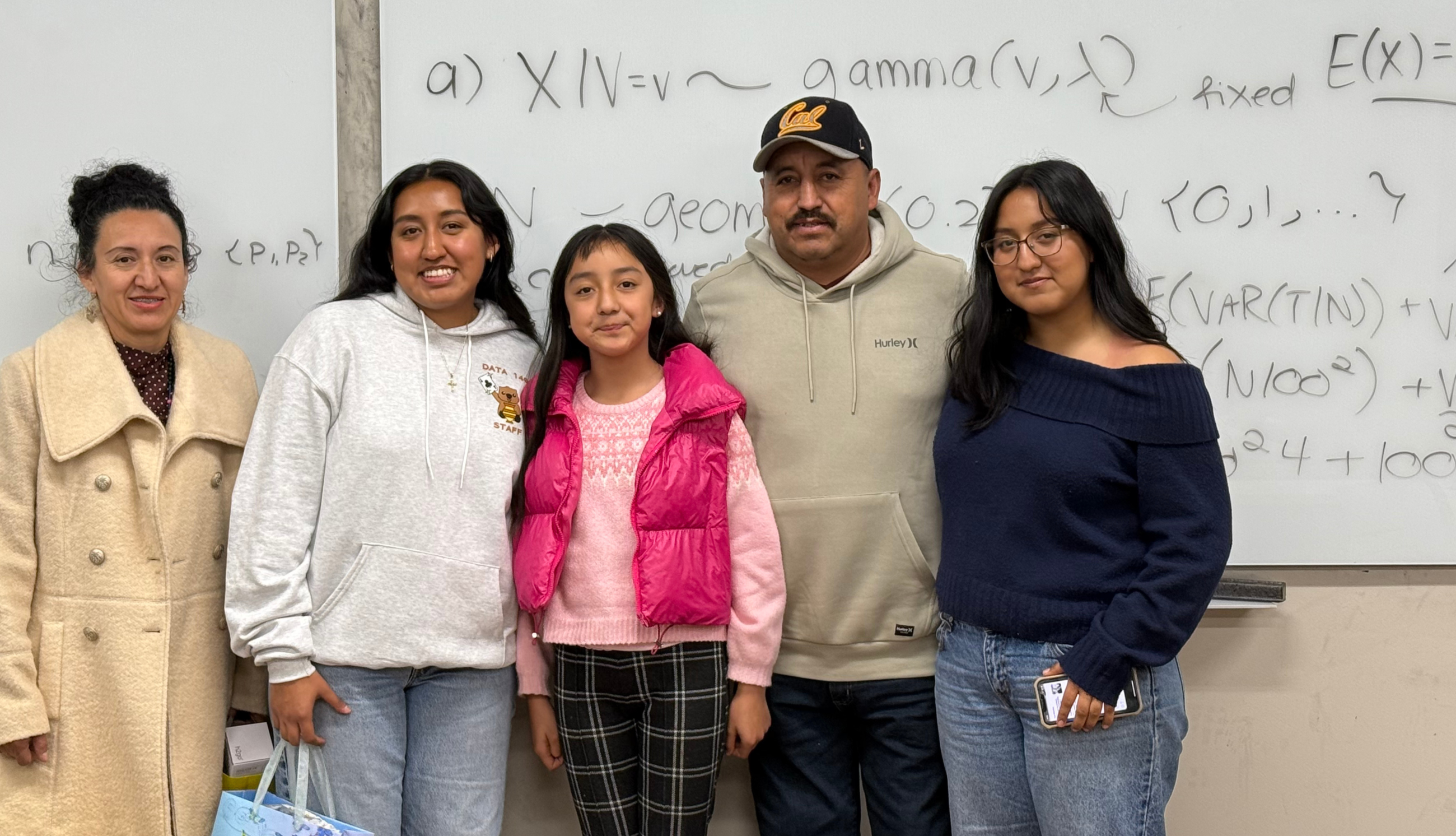
On a rainy fall day, senior Fatima Guadalupe Gonzalez Perez teaches one of her last data science sections of the term. The classroom is filled with students, listening intently and asking thoughtful questions about probability. But it’s the small group in the back that Gonzalez Perez is trying to ignore in order to keep her nerves in check. Her parents, accompanied by her two younger sisters, hold up their phones to take pictures, their faces alight with pride.
Gonzalez Perez brings not only her statistical expertise to the upper division course. As a first generation college student, Gonzalez Perez grew up with the understanding that she would pave the way for her younger siblings in pursuing higher education. She carries that history into the classroom as well, shaping a teaching approach that levels the playing field for her students.
Over 200 students served as course staff in fall 2024. Gonzalez Perez is an example of how the personal experiences and perspectives of student instructors shape the culture of data science at UC Berkeley.
Family sacrifices, academic aspirations
Born to parents who emigrated from rural Mexico, Gonzalez Perez grew up in a family that valued education despite limited formal schooling. Her father completed high school, and her mother’s education ended after the sixth grade. When Gonzalez Perez was seven, her family briefly returned to Mexico. However, the disparity in educational opportunities between the U.S. and Mexico brought them back to prioritize their children’s futures over their own comfort—a decision that came at the emotional cost of leaving loved ones behind.
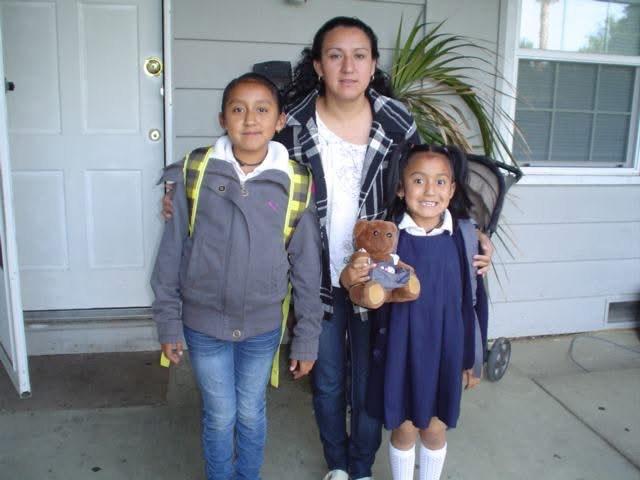
Growing up, Gonzalez Perez excelled academically but also felt the weight of her parents’ sacrifices. While her parents encouraged her to pursue higher education, they didn’t know how to guide her through the intricacies of college preparation. Despite often feeling alone in the process, she earned a spot at UC Berkeley.
However, once in college, she faced new challenges—a sense of unpreparedness, doubts about her choice of major in the social sciences, and a profound feeling of not belonging. These struggles nearly led her to drop out after her first year.
The turning point came when Gonzalez Perez’s mother, who worked cleaning houses in Silicon Valley, shared her daughter’s struggles with an employer. That employer met with Gonzalez Perez and introduced her to data science, providing her with programming materials. Over the summer, she discovered a love for coding and problem-solving, which reignited her passion for learning. When she returned to Berkeley, it was as an intended data science major, ready to tackle her new path.
A shift in perspective
Gonzalez Perez credits her parents with inspiring a change in how she viewed her college experience.
“My parents have always been unapologetic about existing in spaces not made for them. They don’t get intimidated by power imbalances. They’ll approach anyone to talk, they’re friendly with their employers–they don’t feel embarrassment or shame because they’re not from here or don’t speak the language fluently,” says Gonzalez Perez. “It inspired me to realize that maybe I was unprepared compared to others in college, but that I could rework the sense of sadness I’d felt about it into a sense of pride.”
This philosophy shapes her teaching. Gonzalez Perez emphasizes kindness and respect among her students, especially when they come from different backgrounds. She sets firm expectations for how they treat each other and resists the instinct to appear infallible. Instead, she’s candid about her own struggles with concepts, showing students that their challenges don’t define their potential.
“Fatima brings to the team an understanding that the students come from vastly different backgrounds, both personal and academic,” says Professor Ani Adhikari, the faculty member who recruited Gonzalez Perez to join course staff. “It’s important for the staff to be conscious of that and capitalize on that. We’re not trying to correct for anything, we’re actually trying to use that as our foundation for the students to do something wonderful.”
Back in the classroom
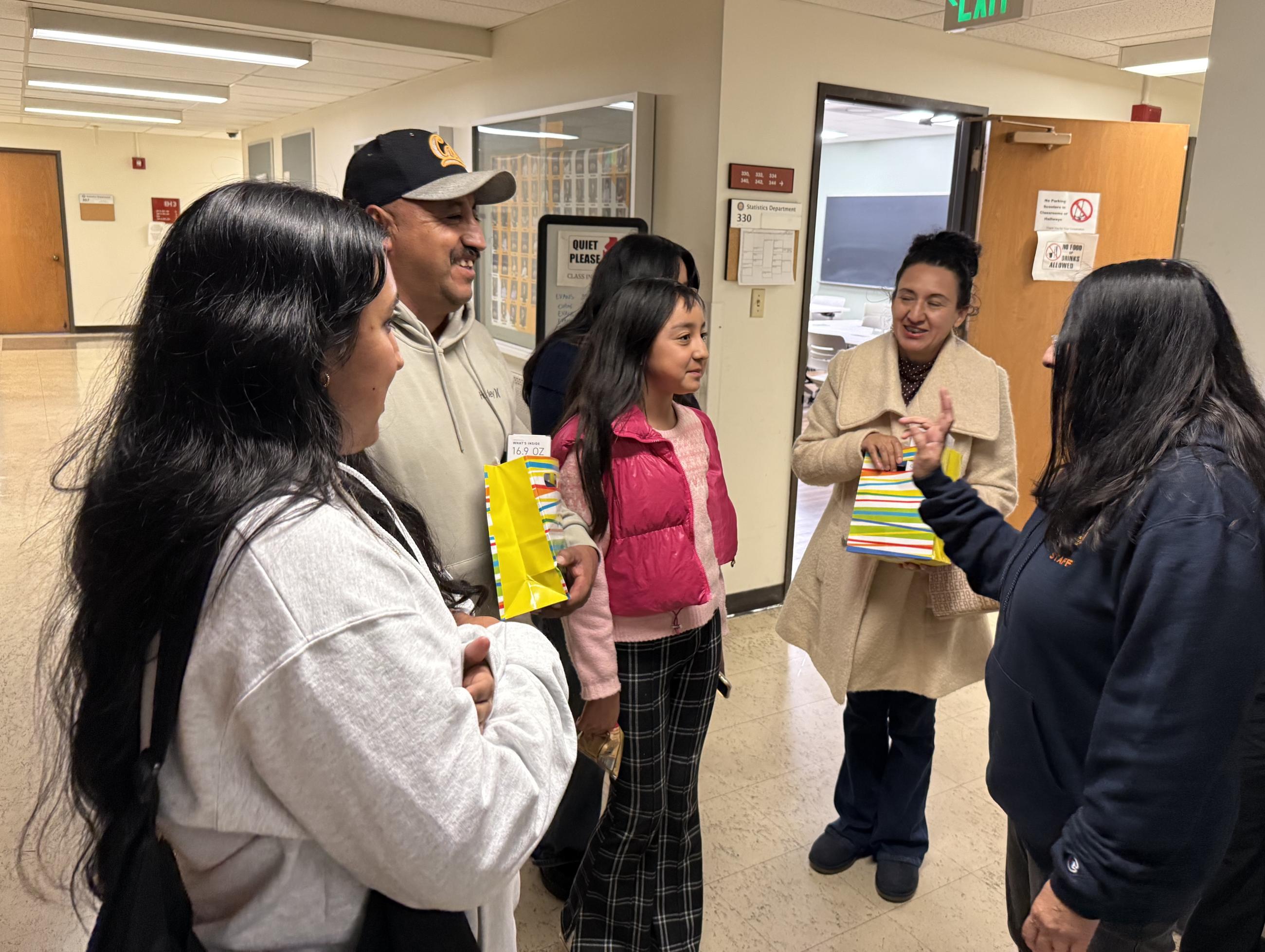
Having her parents watch her teach is an emotional experience for Gonzalez Perez. Their presence in the corner of the classroom strikes her as symbolic: they have always been in her corner.
“Even when I was in elementary school, they were there to support me, even when they didn’t understand,” she says. “Them watching me, looking so proud, made me feel like a little girl again.”
The moment made her reflect on how her relationship with her parents’ involvement in her education has evolved.
“As a kid, I wanted to talk to my parents about how I’d worked through a problem on my math homework and got frustrated that they didn’t understand. This time, I knew they couldn’t understand a single thing I wrote on the board, but it didn’t matter. They were happy I was writing on a board and I’m content with that.”

